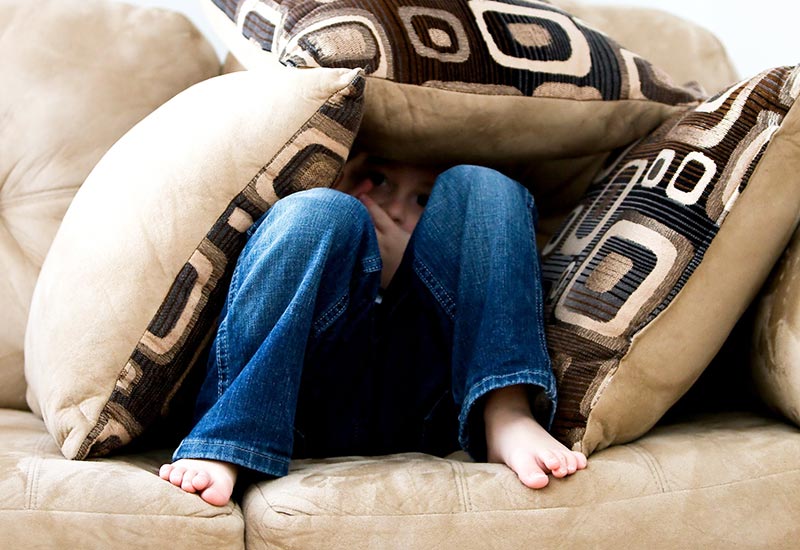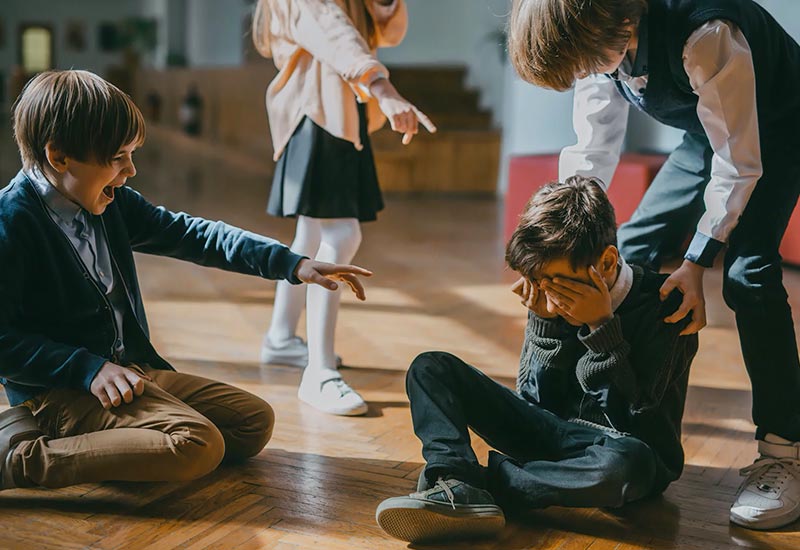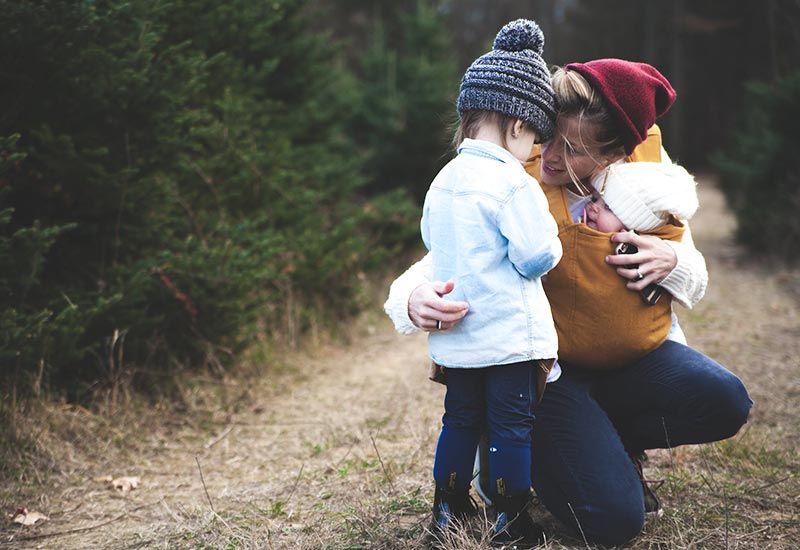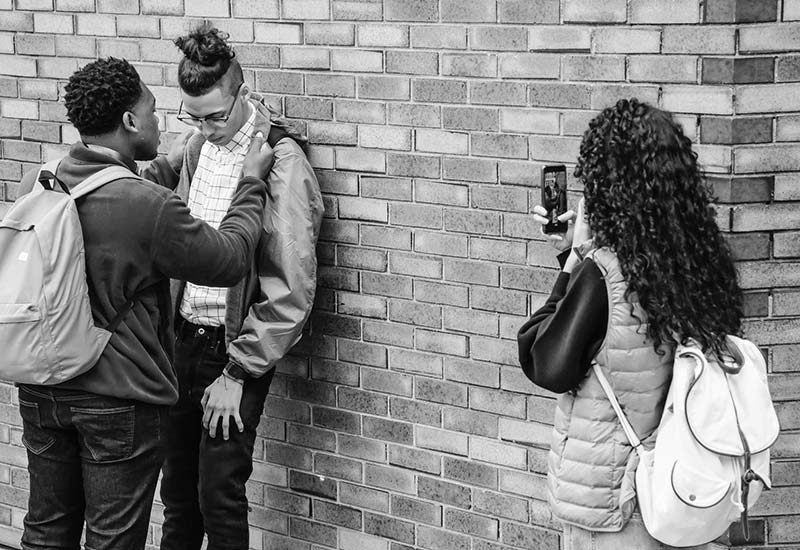Want to learn more about bullying in kids? Then you've come to the right place! Many of us adults can probably imagine how it feels to be bullied or even terrorized by others on a daily basis. For example, because they experienced or at least witnessed it themselves in their own youth.
Children being bullied at school, on the bus, on the street or in sports clubs is unfortunately not unusual, but an everyday occurrence. It also affects them particularly badly because they usually can't explain the situation they're in. If this is the case with your child, you should therefore always take the situation seriously and support your darling. Bullying can have serious consequences - both for your child and for others.
In this article, I have compiled some tips for parents who are currently confronted with the issue of bullying or would like to prevent possible problems. Learn how to identify bullying in children and how to effectively support your son or daughter. Let's go!
Here you can find a short overview in advance:
How can I tell if my child is being bullied?

When a child is bullied by other childrenit's not always so easy to tell. Some kids are open and talk about their experiences. They tell their parents right away when they feel anxious or uncomfortable and are regularly teased.
Other children, however, are quieter and avoid showing their feelings because they are embarrassed, for example. If you are unsure whether your darling is being bullied, there are some Signs that can be observed. Here are some, typical identifying characteristics of bullying victims:
Your child...
- suddenly doesn't like coming to school or even refuses to go.
- is afraid of certain classmates or classmates.
- Spends a lot of time alone and says he/she has no friends.
- Comes home with hurtful or derogatory comments.
- suddenly has behavioral problems or becomes aggressive.
- shows signs of depression.
- Has bruises or sores on body/wears only long clothes.
- Is constantly tired and has no energy left.
At the latest, if you notice any of these signs, you should talk to your child and find out what exactly happened.
What are the types of bullying?

Bullying among children comes in many forms and shapes. In most cases, it is carried out by other children or young people, but adults can of course also bully. Often the latter is even a consequence of their own youth, when they themselves were bullied.
The most common Types bullying are:
- Physical bullyingThis involves kicking, hitting or otherwise physically attacking other children or young people. Verbal threats and insults are also included.
- Social bullying: This involves excluding or isolating other children or young people. This can be done, for example, by bullying behavior towards peers or by spreading rumors about the affected person.
- CyberbullyingCyberbullying involves insulting, threatening or defaming other children or young people via social media or cell phone apps. Blocking contacts on social media is also part of cyberbullying.
What are the consequences of bullying for children?
Bullying can involve many different effects have, depending on how long it lasts and what form it has taken. In most cases, however, it leads to negative emotions such as anxiety, depression or loneliness. In addition, victims of bullying can contact sleep problems, concentration difficulties or anxiety states and, in particularly severe cases, tend to commit suicide or run amok.
If you think your child is a victim of bullying, you should talk to your sweetheart about the situation. It is important to understand why he/she is having these experiences and the impact they are having.
Video Tip: Be sure to watch the video embedded above. In the conversation between the bully and the victim of bullying, you can get a picture of the cruel, overall cycle of bullied people and better understand causes and consequences.
10 tips for parents against bullying in children

Now you've learned about the characteristics, possible causes, and consequences of bullying in children. Now I would like to give you, as a mother, father or confidant of a child, valuable tips to effectively protect him/her from suffering from bullying attacks.
1. talk about feelings
Make sure your child knows full well that he or she has your ear. Let them know that it's perfectly okay, talk about feelings and that you will help him deal with the situation better.
2. train social skills
Support your offspring in this, develop social skills. This will help your child to cope better in school and in social situations. In addition, it makes your darling less vulnerable to bullying.
3. promote social exchange
Sensitize your daughter or son and make sure he/she is involved in various activities and clubs is active. This not only helps to make new friends, but also boosts self-confidence.
4. talk with teachers
Talk to teachers and other educators about the issue and ask to keep an eye on it. This way, you can recognize bullying early on and intervene if necessary if your child is being bullied.
5. help children to help themselves
Talk openly with your child about bullying and encourage him or her to tell others about it. This way, your child can learn, better deal with corresponding situations and at the same time help other children who are in a similar situation.
6. talk with friends and other parents
Hold a regular exchange with the parents of the friends of your child. You can thus support each other and recognize possible signals and problems early on and solve them together.
7. strengthen self-confidence
Promote self-love and self-confidence of your childso that he/she can better accept and protect him/herself. This also helps him/her to have a positive effect on others and to counteract bullying among children.
8. define safe points of contact in the event of an emergency
Make sure your son or daughter knows where to get help if the worst happens. For example, with teachers and educators or at a counseling center.
9. collect information
Find out about bullying in general and talk to experts about it. This is extremely important in order to better understand the background and to be able to put yourself in the shoes of potential bullying victims. This way you can help your child more effectively and understand what your child is going through.
10. set a good example
Be a good role model! Behave respectfully towards other people and oppose discrimination of all kinds (for example, get involved, Stop hate on the net). In this way, you learn to be fair to children and young people yourself and not to give exclusion a chance in the schoolyard or on the Internet!
Seek professional help
If your child is being bullied, don't shy away, seek professional help. There are a large number of counseling centers and self-help groups that specialize in the topic of bullying.
Most children can learn with professional help, better deal with the situation and protect themselves. Many professional helpers are psychologists, social workers or teachers.
If you believe your child is a victim of bullying, you should talk to her/him about the situation and find out if he/she is needs professional help.
There you can then talk calmly about what has happened and how things can continue. At the same time, you also get the chance, Develop a plan to specifically improve the situation.
Bullying is a serious problem - with serious consequences!

Bullying in children is a problem that must be identified and remedied as soon as possible to prevent serious consequences. It is tremendously important that parents recognize bullying signals and protect their children by the topic is talked about openly. Thus, everyone can teach their own offspring how to behave properly in the event of bullying.
No one should close their eyes and offer the perpetrators a stage. I hope that I was able to help you with this article and sensitize you to bullying. Do you have any questions, tips or your own youth experiences with bullying that you would like to share? Then I look forward to your comment.
Stay fair, friendly and supportive,

PS.: Bullying is hopefully (soon) no longer an issue in your family! If you feel like it, you can now read the next article about how to Raise children's awareness of environmental protection and sustainability can. Have fun with it!





